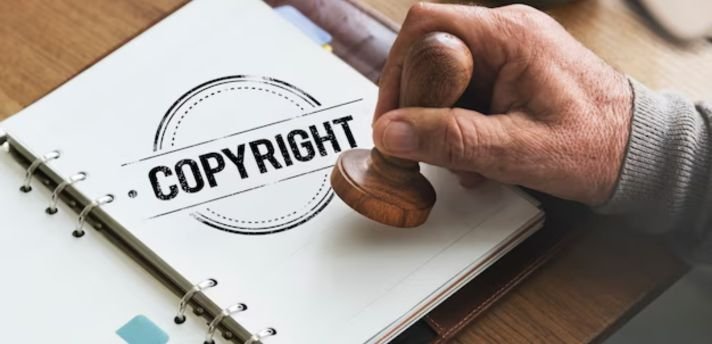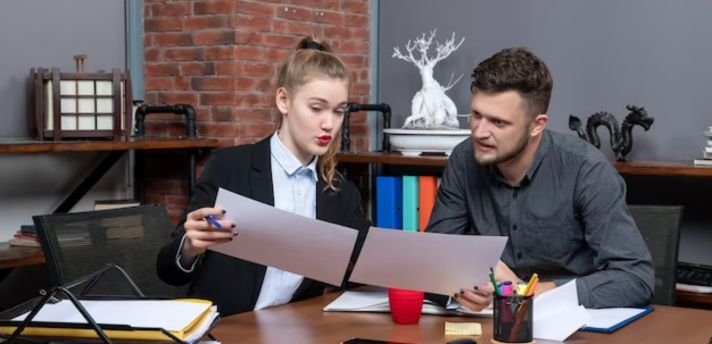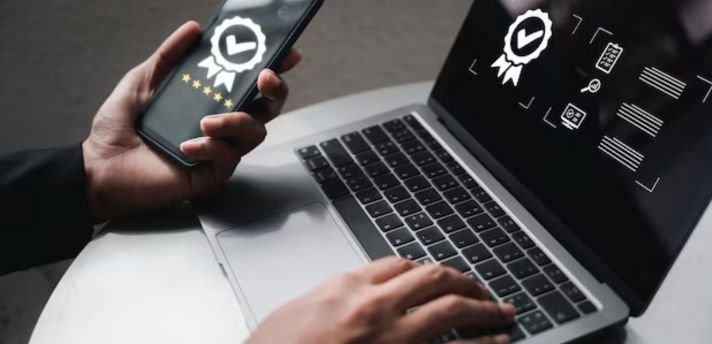


Copyright and plagiarism are two concepts that are often confused. Many people use the terms interchangeably, but there are some important distinctions between plagiarism and copyright infringement.
In this comprehensive guide, we’ll break down the key differences between plagiarism and copyright violations, look at some examples, and explain why it matters.
Before we dive into the differences, let's start with some basic definitions.
Copyright is a form of legal protection granted to the creators of original works, including books, movies, music, artwork, and more. Copyright law gives the creator the exclusive right to reproduce, distribute, publicly perform, publicly display, and make derivatives of their work.
Copyright infringement is the unauthorized use of a copyrighted work in violation of the copyright holder's legal rights.
Plagiarism is presenting someone else's work or ideas as your own without crediting the original creator. Plagiarism can involve using words, phrases, or longer passages from someone else's writing without proper attribution.
Self-plagiarism is reusing your own previously published work without citing it, which is common in academic contexts.
So in short:
Now let's explore the key differences in more detail.

While copyright and plagiarism overlap in some cases, there are some important ways in which they differ:
The main difference is that copyright infringement is illegal, while plagiarism itself is not illegal. Copyright infringement can lead to legal consequences like fines or damages. Plagiarism may violate ethical or academic standards, but it is not a crime in the legal sense.
Copyright applies to any creative work, like books, photos, songs, videos, software code, and more. Copyright does not depend on whether the work contains "original" ideas or expression. Plagiarism more commonly applies to written works that contain creative expression or original ideas. Simply restating facts or widely known information typically does not qualify as plagiarism, but could still infringe copyright if done without permission.
Copyright protects the creator's intellectual property rights and controls certain uses of the work. Plagiarism takes credit for the ideas, words, or creative expression of the original author. So copyright focuses on protecting rights, while plagiarism focuses on attribution.
You can freely use a copyrighted work if you get the creator's permission. However, permission does not make plagiarism ethical. Plagiarism requires properly crediting sources, even if you have permission to use the work.
Copyright infringement does not require intent - you can infringe copyright accidentally. But plagiarism implies intent to present someone else's work in a deceptive way. Unintentional failure to cite sources is seen as poor practice, not true plagiarism.
So in summary, copyright is concerned with the creator's legal rights, while plagiarism focuses more on ethical standards around attribution and falsely claiming credit for others' work. You can check for plagiarism on the awesome Plagiarism Checker from SEOToolsPark.

Copyright piracy or copyright theft is a form of copyright infringement involving deliberately reproducing, distributing, or using copyrighted content without permission and for personal gain.
This differs from plagiarism in several key ways:
So in summary:
Both undermine the rights of creators, but piracy does so more deliberately for commercial gain rather than just taking credit.
In some cases, an act can involve both plagiarism and copyright infringement. For example, a student copies long passages from an online source into a paper without citing it. This would qualify as:
But there are also cases where only one or the other is involved:
So the key separators are:
Proper citation matters for plagiarism, but not for copyright. The degree of copying matters more for copyright than plagiarism. Keeping these key differences in mind helps distinguish between the two.
Let's summarize the key differences between plagiarism and copyright infringement:
| Plagiarism | Copyright Infringement |
| Ethical Issues | Legal issue |
| Focuses on false attribution | Focuses on the rights of a creator |
| Requires intent | Does not require intent |
| This applies mainly to expressive works | This applies to any creative work |
| Harms reputation | Carries legal penalties |
| Defined by community standards | Defined by copyright law |
While subtle, these distinctions are important. Copyright protects an author's intellectual property rights. Plagiarism misrepresents the original creator, even if rights are not infringed.
So plagiarism is handled as an ethical matter, while copyright is enforced through legal means.
Proper attribution matters for plagiarism, while permission is key for the lawful use of copyrighted works.
Let's recap the key differences between plagiarism and copyright infringement:
While subtle, this breakdown shows that plagiarism centers around falsely taking credit, while copyright focuses on protecting creators' legal rights and control over their work.
Given the above comparisons, plagiarism and copyright infringement are clearly not the same thing. Here's a quick summary:
So in short, plagiarism and copyright infringement are distinct concepts with some overlap. Plagiarism involves the intent to misrepresent authorship, while copyright protects the legal rights of creators. Relying on proper citation avoids plagiarism while seeking permission avoids copyright disputes.
To summarize, here are the key differences between plagiarism and copyright:
While subtle, these differences illustrate that plagiarism centers around falsely taking credit, while copyright protects the rights and interests of creators. The two concepts do overlap, but focus on different core issues.
While often lumped together, plagiarism and copyright infringement are distinct legal and ethical concepts:
So in summary, plagiarism centers around willful misrepresentation, while copyright protects creators' interests. They overlap but differ in nature, intent, and focus.
Plagiarism and copyright infringement both undermine the rights of original creators. But which is worse?
In general, copyright infringement is considered more serious from a legal standpoint because it threatens creative industries and carries harsh penalties. But plagiarism also deeply harms cultures that depend on trustworthy exchange of ideas.
The main takeaway is that properly crediting sources avoids issues of plagiarism while seeking permission prevents copyright disputes. Both forms of violation harm creators and society, but in different ways. The core offenses differ - plagiarism deceives about authorship, while copyright denies economic rights.
While often conflated, plagiarism and copyright piracy have distinct meanings:
| Plagiarism | Copyright Piracy |
| Takes credit for authorship | Profits from illegal use |
| Harms reputation | Steals commercial value |
| Small portions copied | Large-scale copying |
| Indirect gains like grades | Direct financial gains |
| Unethical but not illegal | Criminal copyright violation |
Both undermine creators' interests, but the core offenses differ - plagiarism deceives about authorship, while piracy steals commercial and moral rights. Understanding these differences helps identify the root problems and solutions in each case.
A) The main difference is that copyright infringement is illegal, while plagiarism itself is not. Copyright involves violating the creator's legal protections, while plagiarism is an ethical issue around misrepresenting authorship and taking credit for others' work.
A) Yes, plagiarism can involve copyright infringement if it uses enough of a copyrighted work without permission. However, not all plagiarism leads to copyright issues. Small instances like a copied sentence with no citation are plagiarism but likely fair use, not infringement.
A) No, reusing your own work without citing it is unethical self-plagiarism, but does not infringe copyright law because you can't infringe your own copyright. However, self-plagiarism may violate the policies of academic journals that require disclosure.
A) No, you can infringe copyright unintentionally, unlike plagiarism which requires intent to take credit deceptively. Simply reproducing major portions of a work without permission can infringe copyright, even if properly attributed.
A) Yes, because plagiarism focuses on misrepresenting authorship. You can plagiarize facts, ideas, or works no longer under copyright protection by presenting them as your own without proper attribution. But this would not constitute copyright infringement if not protected by copyright currently.
While often conflated, plagiarism and copyright infringement have distinct meanings around taking credit versus protecting creators' interests. Plagiarism centers on intent to deceive about authorship, while copyright focuses on legal protections for any creative work.
Copyright violations carry harsh penalties, but plagiarism also deeply harms cultures of trust in institutions like academia.
Understanding the key differences helps creatively credit sources to avoid plagiarism, while also respecting copyright protections - both vital practices for a fair and thriving creative ecosystem.